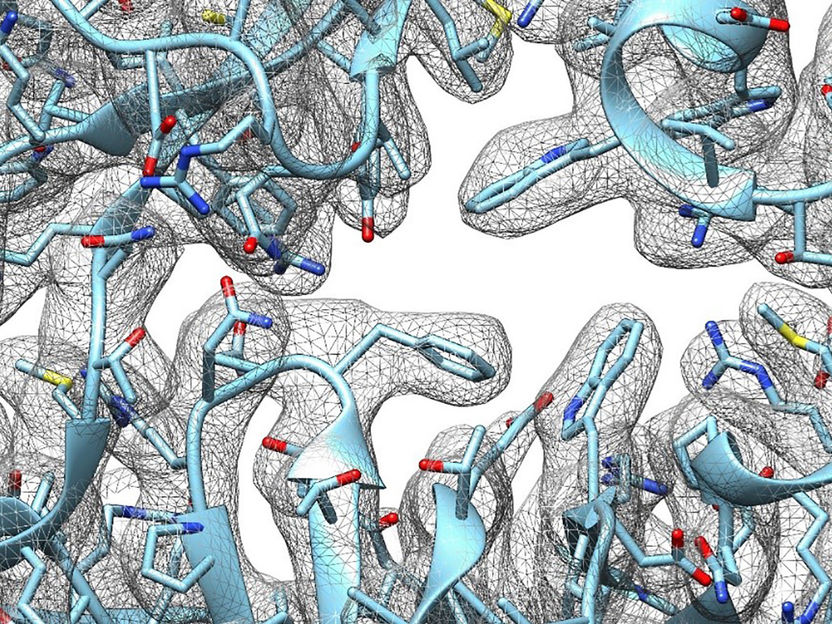Bacteria under stress
Understand bacterial defense mechanisms in detail
Advertisement
In stress situations, bacteria use special ion channels for defense. Understanding how they function provides the basis for combating harmful bacteria. A Würzburg research group in cooperation with ETH Zurich and the University of Oxford has now been able to decipher how two of these channels are structured and how they open up.

The figure shows a section of the structure of the bacterial mechanosensitive channel YnaI. The picture shows a portal that salt ions have to pass.
AG Boettcher, RVZ
If it starts to rain, this can be a dangerous situation for bacteria. Due to the decreasing salt concentrations in the environment, water flows into the cell with the higher ion concentration for compensation and causes the cell to burst. As a defense mechanism, the bacterium Escherichia coli has seven different types of channels in the cell membrane. These channels function like doors and can channel ions into the cell or out of the cell.
The research group of Prof. Bettina Böttcher from the Rudolf Virchow Center for Integrative and Translational Bioimaging at the University of Würzburg has now succeeded in deciphering the exact molecular structure of two more of these channels using electron cryomicroscopy. The study is an international collaborative work with the groups of Prof. Rainer Hedrich from the University of Würzburg, Prof. Mark Sansom from the University of Oxford and Prof. Renato Zenobi from the ETH Zurich.
By knowing the high-resolution structures, the scientists can on the one hand distinguish the different channels and on the other hand better understand how exactly the opening mechanism, i.e. the "door handle", works. "Only if we understand bacterial defense mechanisms in detail can we successfully combat pathogenic bacteria," emphasizes Böttcher. "Mechanosensitive channels are also involved in other important biological functions, such as blood pressure regulation and hearing. However, their basic mechanisms have not yet been sufficiently researched. This is why basic research is so important here," adds Dr. Tim Rasmussen, who is a post-doctoral researcher in the Böttcher group.
























































